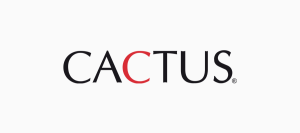In 2024 alone, over 6,000 scholarly articles were retracted due to integrity breaches, double the number from 2020. As fraudulent practices become more sophisticated and widespread, editorial teams need scalable tools that not only detect these risks early but also preserve editorial bandwidth and protect journal reputation.
Paperpal Preflight for Editorial Desk (PPE) is the AI+human co-pilot that combines advanced integrity checks with expert review to catch fraudulent manuscripts early, evaluate quality, and streamline editorial decisions saving editors hours while safeguarding journal credibility.
Why Early Detection Matters
Retractions are costly, complex and reputationally damaging. But the solution isn’t just identifying what went wrong post-publication it’s proactively preventing problematic manuscripts from progressing through the pipeline.
Paperpal Preflight for Editorial Desk (PPE) stops fraudulent submissions at the gate, offering editorial teams a powerful first line of defense.
- AI-generated or manipulated text
- Fabricated images
- False authorship claims
- Excessive self-citation
- Recycled or unrelated references
Key Categories of Checks Conducted by Paperpal Preflight for Editorial Desk
PPE screens submissions across several categories:
- Textual Integrity: Flags AI-generated or manipulated language, poor grammar, and unnatural phrasing.
- Authorship Verification: Verifies legitimacy of affiliations and checks against internal data for prior retractions or conflicts.
- Citation Analysis: Identifies excessive self-citation, citation clustering, or unrelated references.
- Image Review: Detects AI-generated or fabricated images with illegible labels or inconsistencies.
- Methodology-Results Correlation: Evaluates whether experimental methods align with the results reported.
These comprehensive checks are essential for catching inconsistencies that may signal manipulation or fabrication.
Technical Capabilities Supporting Detection
Paperpal Preflight for Editorial Desk’s effectiveness is powered by a robust technical infrastructure, including:
- Document and Text Processing Engine: Accurately extracts and structures content from DOCX and PDF files, tagging author data, affiliations, and references.
- Proprietary Internal Database: A massive dataset of over 266 million research articles and 167 million DOIs, enabling retrospective retraction checks and citation verification.
- Author Disambiguation System: Resolves common-name confusion using metadata such as departmental and institutional identifiers.
Paperpal Preflight for Editorial Desk is the AI co‑pilot that stops fraudulent manuscripts before they reach peer review, saving editors hours and safeguarding journal credibility.
These capabilities allow PPE to deliver high-precision, contextual screening at scale. While tools that flag plagiarism serve a purpose, fraudulent manuscripts often involve multiple, deliberate violations. PPE goes beyond surface-level detection, offering:
- 25+ research integrity checks
- 45+ total checks including technical assessments
- Customizable thresholds to align with editorial policies
- Adaptability to emerging manipulation tactics
This ensures journals can stay ahead of evolving threats with a more holistic assessment tool.
Scoring System and Risk Ratings
Each check has a configurable threshold and weight, allowing journals to:
- Set stricter or more lenient parameters for self-citation, methodology alignment, etc.
- Prioritize risks specific to their discipline or audience
Based on the checks triggered and their weightage, PPE assigns one of three risk outcomes:
- Pass: Manuscript meets integrity standards
- Warning: Editorial review advised
- Critical: Major risks detected; desk rejection recommended
Even a single high-weight issue like a retraction linked to manipulated data can warrant critical classification. PPE adjusts scoring if a past retraction was due to non-deceptive causes, such as a statistical error.
Flexible Integration into Editorial Workflows
Paperpal Preflight for Editorial Desk integrates at multiple points in the editorial process through two operational modes:
- Ambient Mode: Automatically screens every manuscript at submission
- On-Demand Mode: Manual checks can be run at any point, including post-review, for added assurance
This flexibility minimizes the chances of problematic content slipping through and reduces dependence on post-publication retractions.
Built on Trust and Transparency
Paperpal Preflight for Editorial Desk is trusted by publishers globally and continues to scale its impact:
- Screening thousands of manuscripts across multiple journals
- Backed by client testimonials, including leading publishers like EDP Sciences
- Built to meet global data standards, including ISO/IEC 27001 certification
PPE provides a comprehensive solution for detecting fraudulent submissions. By identifying multiple, often interconnected signals of misconduct early in the editorial process, it helps journals protect the integrity of their publications while streamlining the decision-making process. Its technical infrastructure, customizable thresholds, and dual-mode screening capabilities offer a scalable, reliable safeguard against evolving forms of academic fraud.
Ready to Safeguard Your Journal? Protect your time, your reputation and your editorial standards with a solution built for the future of academic publishing. Book a 15-minute demo of Paperpal Preflight for Editorial Desk and see the difference for yourself.









